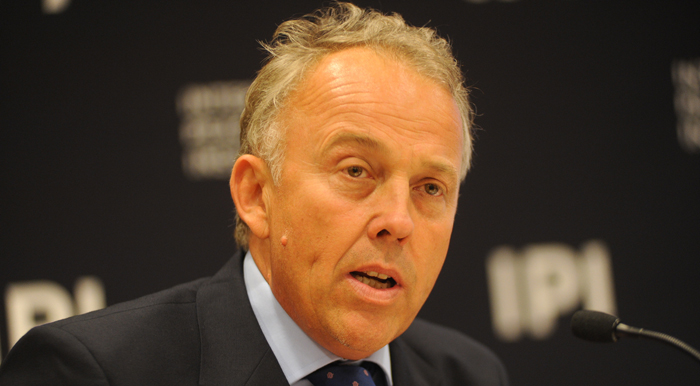
“Why is it that the humanitarian dimension to Afghanistan constantly gets forgotten or air brushed out of things?” said Michael Keating, Resident and Humanitarian Coordinator for Afghanistan, and Deputy Special Representative of the Secretary-General (DSRSG) of the United Nations Assistance Mission in Afghanistan (UNAMA).
“This is unfortunately one of the biggest humanitarian case loads in the world… So often we’re focused on ‘green on blue,’ we’re focused on Haqqanis, we’re focused on all the drama and the horror, we forget that it’s the welfare of the people, it’s the human development, it’s the humanitarian situation which needs to be addressed if Afghanistan’s future is to be both secure and prosperous and politically stable.”
Mr. Keating spoke at IPI on September 11, 2012 for an event entitled “Afghanistan: The Humanitarian Challenges Ahead.”
The event inaugurated IPI’s Humanitarian Affairs Series, which features UN humanitarian coordinators and senior humanitarian leaders from the field on their visits to New York, much like the way that IPI showcases the work of the Special Representatives of the Secretary-General in its SRSG series.
“Afghans are facing a very uncertain and unpredictable future, and they are hedging their bets in terms of how to handle this future,” said Mr. Keating. “They’re facing the reality of the departure of the international military… they’re facing the prospect of elections in 2014…they’re also facing uncertainties over peace and reconciliation.”
He added, “I think the responsibility of the international community is to help Afghans reduce that level of uncertainty, reduce that level of unpredictability… failure to address development, failure to address the humanitarian needs will have very negative consequences for the entire project and for the ability of the government to persuade the people that it is able to respond to their needs.”
As part of his presentation, Mr. Keating also addressed the situation facing Afghan women, the challenges of UN integrated missions, and the need for humanitarian access. On access, Mr. Keating said, “The key issue is to gain the confidence of communities… to share experience, not to adopt a cookie-cutter approach, and to back up practical field level attempts to achieve access.”
While Mr. Keating emphasized the need to focus on Afghanistan’s humanitarian situation, he also faulted the international media’s dire portrayal of the country.
“The mood about Afghanistan seems to be much more negative outside Afghanistan than it is when you’re actually there.”
“Undoubtedly, the most important Afghan partners are local communities… one of the most remarkable things about Afghanistan is not what has gone wrong, but what has actually continued to go right, and one of those things has been the resilience of community structures,” said Mr. Keating. “Having said that, we are concerned that Afghan resilience is eroding.”
The Humanitarian Affairs Series aims to provide a dedicated forum in New York for humanitarian practitioners in the field to meet with the broader UN and international community. “It is an opportunity to debate and reflect with experienced practitioners on the greatest humanitarian challenges today,” said Jérémie Labbé, IPI Senior Policy Analyst, during his opening remarks.
The event was moderated by Maureen Quinn, IPI Senior Adviser.
Interview with Michael Keating, UN Humanitarian Coordinator for Afghanistan
Watch the event video:







